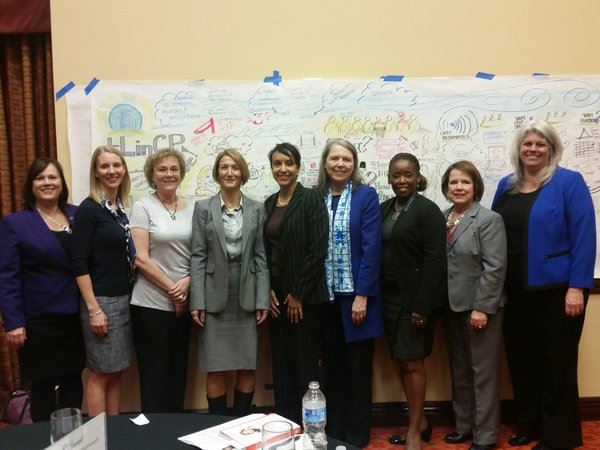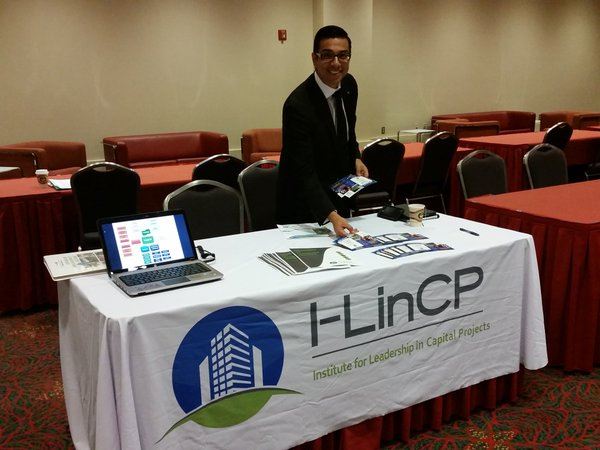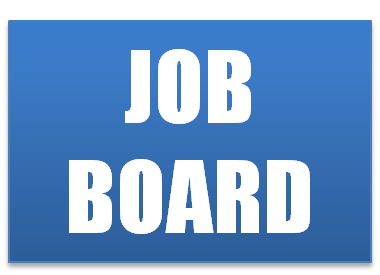Our MissionEvolve the capital projects industry though sharing of knowledge for optimized leadership, delivery and performance. |
|
|
 |
The Project Partnering Process - A Primer |

Carol Warkoczewski, City of San Antonio
Partnering is a voluntary, organized process by which two or more organizations having shared interests perform as a team to achieve mutually beneficial goals...
Partnering has been defined in a number of ways. The booklet, "Partnering: Changing Attitudes in Construction," published by the Associated General Contractors of America says: "Everyone involved in the construction project agrees to treat everyone else as a partner. It's all based on the premise that working together creates success. And the benchmarks of success are determined at the beginning... Partnering creates a team approach to the effective and efficient management of a construction project."
“The Partnering process is more than just having a ‘feel good’ meeting at the beginning of the job. It’s about establishing tools to ensure that the project moves along and that any issues are resolved in a timely manner.”
-Thomas Warne
Partnering is a process used to ensure the success on projects, regardless of the size and scope. The process relies on collaborative work of the entire team, consisting of owners, contractors, designers, engineers and subcontractors.
Essential to the process is the recognition that the project goals and objectives of the individual groups are one and the same. For example, safety, timeliness and quality are all important goals that the owners and contractors want to maximize. In order to be optimal and successful, the process requires the following:
Establish Top Management Commitment - If the head isn't willing to cooperate, the body won't follow. Top management commitment is essential. Workers act in accordance with how the bosses act, not just in accordance with what they say. Once top management is committed, all participants in the performance of the contract should be brought on board.
The following is an amended list of the Rewards of Partnering generated by the participants at a City of Austin Partnering Design session:
- Builds team trust and improved communications
- Builds a project foundation with better planning, creating a better project
- Improved coordination, fewer surprises
- Schedules maintained, on time completion
- Money saving, effective management of resources
- Efficiency and more accurate bids
- Meeting all project goals, quality project
- Realistic expectations
- Time and money savings - better product
- Increased profitability
- New and creative solutions
- Confidence that problems can be resolved
- Creates a feeling of accomplishment because everyone has contributed
- Problems resolved at the lowest level or escalated up an issue resolution ladder
- A methodology for avoiding and resolving disputes, mitigation of conflict, avoiding litigation
- Better understanding of each stakeholder's roles and needs
- Ongoing, constructive relationships
- Better working relationships, builds trust for future projects
Initial Partnering Session - Held at the beginning of the project, this session is where the team develops their list of common goals for the project, writes their team charter, establishes their issue escalation process and develops their team evaluation tool. It is an important first step to effective Partnering. Relationships and trust are built here and champions are assigned.
Common Goals - Teams discuss and agree on the goals that will define success for the project. They may relate to safety, quality, schedule, budget, public relations, environmental concerns or any number of other elements. It is important that they be unique to the project and that all recognize them as the defining measures of success for all involved on the project.
Project Charter - Once the team goals are established the team charter is written around those goals. It is not a contract document but rather a description of how each member of the team will treat the other and captures the common goals of the group.
Issue Escalation Process - Timely decision-making is key to success on any project. In order to facilitate this important element for success the Partnering process establishes a method whereby issues move up the chain of command quickly and in such a way that they don’t impact the flow of the project. This is a very disciplined process and one of the important aspects of Partnering resulting in more timely resolution of the day to day project issues.
Team Evaluation Tool - How is the team doing? If you don’t ask you don’t know. In Partnering you develop an evaluation tool that captures how people are feeling about the common goals for the project.
Following Up - After the project starts it is important that the team gets together and assesses the issues and whether or not they are being resolved, look at the evaluations and see where the team can improve and deal with new issues that may be on the horizon. A mistake that many teams make is not having enough follow up Partnering Sessions. Regular sessions keep the Partnering relationship alive and the process working. Both parties need to continually reinforce the Partnering process. Decades of adversarial attitudes cannot be changed overnight. Simply conducting a workshop is not what Partnering is about, although it is a good start. To gain the full benefits of Partnering, the parties must prepare for changes and evaluate the relationship and success of Partnering on a routine basis.
So why do it all? Why not save the time and continue the process as has been for the past x years? Well, Partnering is sound project management philosophy. However, the process directly implements the philosophy in a direction to change our actions. Without some change in our actions, we may think differently, but act the same way, and receive the same results as always. When the Partnering process is properly used, the results are dramatically different.
The benefits include:
Reduced Litigation - To date, reports indicate that not a single dispute has gone to litigation on a partnered project. This is in stark contrast to the number of disputes received on non-partnered contracts of similar size and complexity.
Both Successful and Profitable Contracts - Experience within the construction industry has shown that Partnering has resulted in completion on schedule, cost overrun reduction by two thirds, reduction in paperwork by 66%, increased value engineering, no lost time injuries, and other mutually beneficial performance when compared to the average contract.
Improved Morale - When people can go to work in a good faith atmosphere, when workers can concentrate on their job rather than on potential complaints by the other side, when people can work together rather than against each other, the morale and effectiveness of all involved is improved.
TWO BIG REASONS FOR 
EMPLOYEE TURNOVER

Ardith Rademacher, Rademacher & Associates, Inc
Why Employees Move Onto Greener Pastures
Employee turnover rates are climbing and are projected to continue to do so over the next decade. Much of this turnover is due to younger workers replacing those who are retiring. Generation X (born between 1965 and 1980) and Generation Y (born between the early 1980's and early 1990's) tend to change jobs more frequently. This trait poses a challenge to any organization's retention efforts.
The best defense is a good offense. That offense is to understand why people are leaving. There are a wide variety of specific reasons why employees resign. The best way to determine specific reasons is through exit interviews conducted after the person has left their position. Delaying the exit interview minimizes emotional responses, especially if the departure was due to a conflict.
In the majority of organizations, when reviewing exit interview data, there is usually an underlying theme of management. Data shows repeatedly that: People don't leave companies, they leave managers/supervisors and the overall work environment!
The most common reasons that have to do with management include:
- Lack of training
- Poor supervision
- Conflicts with management and/or other team members
- Management/employee mismatch
Conflicts are one of the biggest catalysts for turnover. It is also one that can be contained if acted upon quickly. Many times it takes just one or two Difficult Employee types to decrease morale thus creating a negative work environment. With upwards of 50 hours per week spent at work, atmosphere is everything.
Salary is also a primary reason for turnover. There is a "salary sweet-spot"of $80,000-100,000 that sees the least amount of turnover. Those above and below this are more likely to leave due to salary. Employees below the sweet-spot feel undervalued and will move on to a position that pays what they feel they are worth. Those above the sweet-spot simply have more options, especially in high demand fields.
Employee turnover directly impacts an organization's bottom line. Issues with management and salary are only two of the most common reasons why employees move on. Many times organizations realize there is a problem when it is too late. In our next article we will reveal how to use predictive analytics in talent management.
MEMBER FOCUS
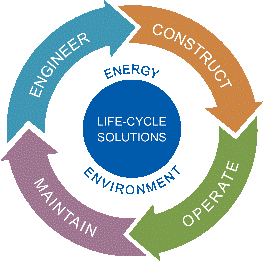
TDIndustries
Superstar Corporate Member since 2010!
TDIndustries (TD) was founded in 1946 as an air conditioning supplier in Dallas, Texas. Since then, the company has grown into the Southwest’s premier mechanical specialty contractor. TDPartners (employee-owners of TD) deliver comprehensive construction, operations and maintenance services through TD’s full life-cycle solutions model: engineer-construct-operate-maintain.
Branch offices in San Antonio, Austin, Dallas, Fort Worth, Houston, Richardson and Phoenix serve customers in healthcare, hotels, education and research, sporting arenas, mission critical and industrial markets. In addition to accolades earned for projects in construction and TD’s safety record, TD has been named to Fortune magazine’s “100 Best Companies to Work For®” list every year since its creation in 1998. In 2016, TD was ranked number 65 and is proud to be the only mechanical specialty contractor on the list.
In keeping with our mission, Core Values and in the spirit of Servant Leadership, TD actively participates within the Architectural-Engineering-Construction (AEC) community. Part of TD’s mission to continually and aggressively improve ourselves mirrors our Core Value to “passionately pursue excellence.”
I-LinCP allows TDPartners the opportunity to engage leaders within the industry on topics like cutting-edge technology; delivery methods; green building and sustainability; and Lean design and construction. Through luncheons, project tours and community service, TDPartners participate on several levels of engagement with AEC peers.

Evelyn Henry Miller, CFO of TDIndustries, was a panelist for I-LinCP’s Invest in Women and Watch Them Thrive mini-forum and workshop. She recognized the opportunity for TD to contribute to I-LinCP in a greater capacity.
In 2016, TD celebrated its 70th year in business. “I am in awe that we have grown from our humbled beginnings as an air conditioning distribution company to a premier mechanical contractor with more than 2,300 TDPartners,” said CEO Harold MacDowell. “As we celebrate TD’s 70th Anniversary, I would like to thank our customers and vendor-partners for their continued support. We couldn’t have gotten here without building trusting relationships, growing our Partners and living as servant leaders. It is the kind of place where we all look forward to coming to work.”
TDIndustries by the Numbers:
- 70 years in business
- 7 branch offices
- 2300+ TDPartners
- $530 million annual revenue
- 23 in-house engineers
- 52 Virtual Design and Construction (BIM) coordinators
- 25 estimators
- 1995 – TD began Lean construction practices
- 24/7/365 Emergency service
- 400+ Service Trucks
BOARD FOCUS
 Mike Lackey
Mike Lackey
Principal, Lackey de Carvajal Cx
I-LinCP Founding Member, National Board Member and past San Antonio Chapter President
Mike Lackey is our longest-running board member, having been with I-LinCP since 2010! We wanted to get to know him a bit better and share with our newer members. We sat down and asked him about his involvement with I-LinCP and the A/E/C industry in general, as well as what he's been enjoying lately:
What drove you to be involved in design and construction? Did you have a mentor or experience that pushed you towards what you are doing today?
My dad is probably the one that got me interested in construction. He was really handy. He grew up during the depression so his mantra was “save everything and fix everything”. Growing up, I was always interested in how things work – physics, chemistry, and biology.
In my high school sophomore year, we studied the Romans in world history; I read a book by the ASCE (Assoc Civil Engineers) about the ancient Roman aqueducts and roads that are still in use today. That’s when I decided that I wanted to be an engineer. I always had an interest in mechanical things so that is why I chose to major in Mechanical Engineering.
How did you first become involved in I-LinCP?
![]() I attended the Original Forum at Lake Travis. At the time, I was working with Parsons and we had the contract to assist the Texas A&M System (TAMUS) FPC with the 2007 legislative TRB (tuition revenue bond) program. We were worked for the TAMUS South region and were very active partners with the TAMUS OFPC in bringing projects on multiple campuses through the project delivery process in a short amount of time. I was very interested in improving the methods by which I could helping my clients deliver numerous projects to the marketplace.
I attended the Original Forum at Lake Travis. At the time, I was working with Parsons and we had the contract to assist the Texas A&M System (TAMUS) FPC with the 2007 legislative TRB (tuition revenue bond) program. We were worked for the TAMUS South region and were very active partners with the TAMUS OFPC in bringing projects on multiple campuses through the project delivery process in a short amount of time. I was very interested in improving the methods by which I could helping my clients deliver numerous projects to the marketplace.
At the same time I was also managing the Parson contract for project augmentation to UT OFPC so I had a bird’s eye view of how two major university systems were bringing projects to market. I was struck by Carol’s vision of improving the project delivery process. I have had an entire career of getting projects delivered in a timely and efficient manner.
How have the AEC industry and I-LinCP changed most since you became involved?
I-LinCP has changed from a small organizer of one-off forums to an highly organized state-wide professional organization with multiple chapters and even a national/international presence.
The AEC industry has continued to streamline the project delivery process. I see that responsibility and risk being pushed further down the whole AEC chain. I see that, in the midst of all the specializations of the functions, we are returning almost to a master builder concept (aka the Design Build Process) where the Designer Builder, usually a contractor, is the sole contract holder with all the design and design responsibility.
There is still a lot of waste and inefficiency in our industry. Numerous stake holders, levels of authority, levels of responsibility and a lack of communication complicate the process. It seems like each project is treated like a one-off so we reinvent the wheel on every project. I see some economies as scale; like pre-fabrication but there are far too many instances where a building is still one brick, metal stud, piece of sheet rock, and door frame etc. at a time.
What kind of trends do you see yourself or I-LinCP being involved in?
As I mention in the last question, Inefficiency in the project delivery is a major concern. Additionally, the lack of skilled workforce is an issue. As an industry we may have to resort to pre-fabrication due to the lack of trained resources – that goes for all functions within the AEC industry whether it be designers, architects, engineers, and trades people.
As an organization [I-LinCP] could play an important role in educating the owners so that they would become more comfortable and quicker in the decision making process which would speed up project delivery.
What other organizations are you a part of? 
San Antonio River Authority (SARA) – Directors
San Antonio River Foundation (SARF) – Board Chair and Director
International Facilities Management Association (IFMA) – Past Programs Committee Chair
Building Commissioning Association – Past Texas Chapter Chair
What hobbies do you wish you took more time for, or would like to learn?
I have way too many hobbies to mention but for now I love a) Genealogy, specifically as it relates to Texas history. I’ve traced my family back 12 generations in Texas. I had ancestors who fought at the Alamo and who were instrumental in the early Texas republic. b) I enjoy being outdoors and exploring nature, usually on my bike or kayak. C) I consider myself and expert griller and fish cooker and d) I really enjoy exploring new craft brews, specifically Belgian Ales. I visit brew pubs whenever I can: (My waist-line tells me I am spending too much time on that hobby!).

What interests you most about LEED design, or what do you think is most important about it?
I see LEED design as taking a back seat to the more rigorous codes which are now in place. When it was first introduced, a LEED building was the standard for a sustainable building. Now I see that the codes have gotten much more rigorous and a building built to current codes is a more sustainable building than one built to LEED standards, even as little as five years ago.
What is your favorite memory from an I-LinCP event?
I really enjoyed the camaraderie and the collegiality in our table discussions. As I look back, I remember many times when we were in the midst of a discussion at our table that included owners, designers, contractors, specialty trades, consultants, etc. and we were all on the same page when it came to improving the efficiency of the design process. It was a beautiful thing to behold – all of us on the same side and of a like-mind.
Sadly, in the real world we all find ourselves in project meetings where you can sense the tension and the adversity in the air; each party’s objectives are not in the best interest of delivering a project efficiently.
What is your favorite media (book, movie, TV show, etc) that you have seen recently? What did you love about it?
I have a double answer: I really enjoy the quality television series produced by the major cable networks. I just watched the LBJ documentary, “All The Way” with Brian Cranston as LBJ. It was extremely well done however I might not have appreciated it as much if I hadn’t read the whole Robert Caro series on LBJ so I knew the back story.
There is just no substitute for the good old fashioned pleasure of reading a really compelling book.
Finally, what do you wish others knew about I-LinCP?
I really wish that others in our industry would get to know the satisfaction of coming together with other industry professionals at a Forum discussion; with the focus of improving the project delivery process.

At I-LinCP, we are continuously aiming to provide more benefits to our members. See below for our newest features!
If you want to look post a job opening, share exciting news, or submit an article or white paper to be published in our newsletter or on our website – these are all new feature now available to our members!
|
8TH ANNUAL FORUM RECAP
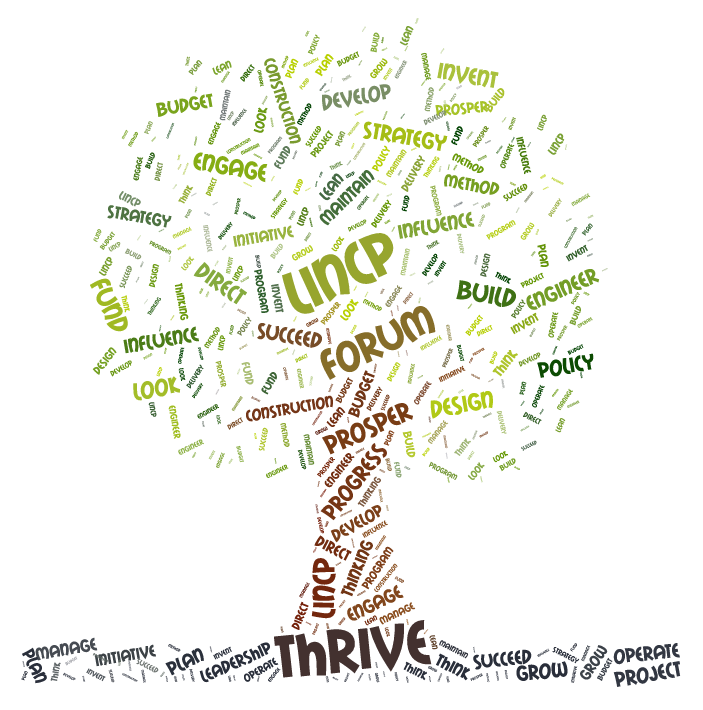 |
Thank you for joining us for our biggest event of the year!Our 8th Annual LinCP Forum and benefit golf tournament was a huge success. With over 150 participants in these events we were able to raise over $1,500 for scholarships for local student and collaborate on LEADERSHIP, FUNDING and BUDGETS, and PROJECT DELIVERY. With outstanding keynotes provided by Rodney Hill, Texas A&M University “The Future of Texas in a Global Context,” and City of San Antonio Mayor, Ivy Taylor “Places and Spaces: The Art of Collaboration.” Along with 15 other industry experts and professionals who presented on these key industry issues, we learned a lot! We are currently looking for speakers, and topic ideas for this event. If you have something you’d be interested in presenting on or have an idea for a Forum topic that you would like to hear more about, please email Carla Bingaman at Carla.bingaman@i-lincp.org. |
CALENDAR OF EVENTS
|
At the Institute for Leadership in Capital Projects we pride ourselves on offering a variety of events for you to enjoy throughout the year. Below is a taste of what we have coming up. We look forward to seeing you there!
|
 |
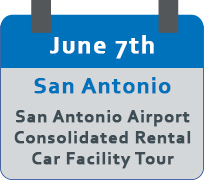 |
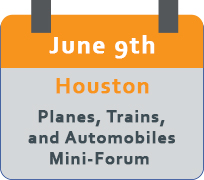 |
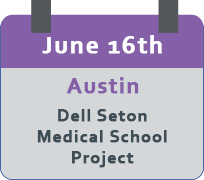 |
|||
|
|
|
|||
 |
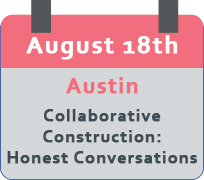 |
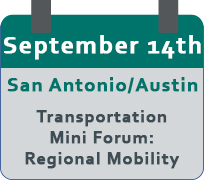 |
|||
|
|
|
PARTNER EVENTS
We’re proud to be a partner with Petrochemical update in: Refining Engineering & Construction Conference & Exhibition which will be held at Omni Houston Hotel in Houston, TX from Nov. 14-15, 2016.

The 2nd Refining Engineering & Construction Conference & Exhibition 2016 (Nov 14- 15, Houston) is the largest and most highly regarded refining event of its kind in North America. Bringing together 500+ industry experts from refinery owners, EPC contractors and key vendors, the conference guarantees crucial market outlook and proven best practices to help refiners supercharge their project execution strategies and utilize growth opportunities amid volatile market conditions.
| FIND OUT MORE |




